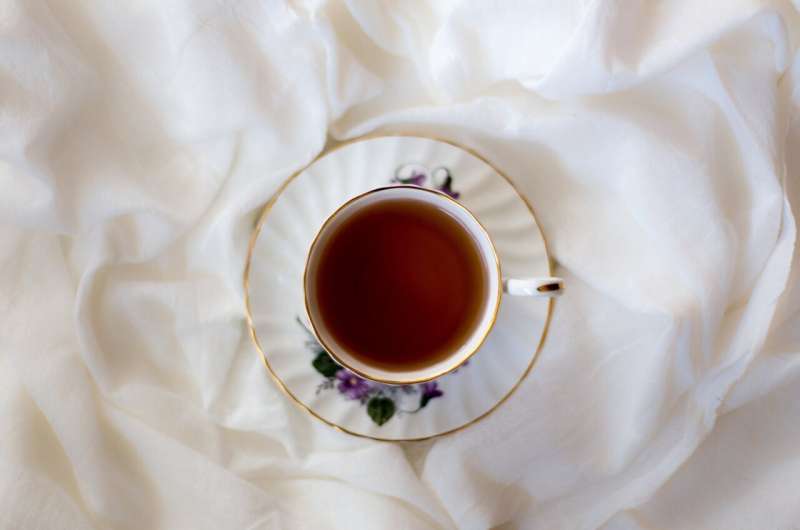#Quinn on Nutrition: Tea, the perfect brew

“#Quinn on Nutrition: Tea, the perfect brew”

After helping me put away Christmas decorations for another year, my younger daughter and I decided to have a tea party … just because. I retrieved my treasured china tea pot that my mom hand-painted many years ago and pulled two of my favorite tea cups out of the cabinet.
Using guidance from tea experts, I poured fresh water into the kettle (never reuse already boiled water, they say) and brought it to a boil. When it was rumbling, I turned off the heat and waited a minute before gently pouring it over the tea. (Don’t want to burn the delicate leaves, they say.)
Now it was time to steep the tea in hot water. I followed the directions for my newest tea find, Trankebar. (This family-owned business in Colorado produces “perfect indulgence teas” and also supports non-profit groups such as Wildlife SOS … hence the elephants on its tea boxes.) As advised, I allowed four minutes for the flavors and healthful compounds in this aromatic black tea to be extracted.
Last step: I gently removed the bags from the water and resisted the urge to squeeze them. This, say tea gurus, prevents bitter compounds from entering my perfect cup of tea.
Ahhh … time to put up our feet and enjoy the moment.
Why is there such pleasure in a simple cup of tea? Turns out this second-most-consumed beverage in the world (behind water) imparts emotional benefits in addition to its well documented health advantages.
This other type of wellness that goes beyond our risk for disease is called “health related quality of life” (HRQoL). It measures how well we function emotionally and socially. Studies are now emerging that report better quality of life scores for people who are habitual tea drinkers. Let’s hear it for tea parties!
There is also good evidence that tea’s compounds have positive effects on bone health and immunity and may help fight off inflammatory diseases such as heart disease and cancer. Obesity is an inflammatory disease as well and I find that a cup of tea in a pretty cup helps me fight the urge to raid the M&M jar.
Most tea research involves the consumption of teas from the Camellia sinensis plant, which includes black tea, green tea, oolong tea and white tea. Their differences arise from how they are processed. Black tea, for example, is darker and has a richer flavor because its leaves are dried and fermented. White tea, on the other hand, has a more delicate flavor and has less caffeine than the others.
What can destroy the healthful properties of our beloved tea? Drowning it in sugar or fluffing it up with too much cream. This may definitely be the year to delight in the goodness of an uncomplicated cup of tea.
Beating the bulge with a nice cup of tea
Provided by
Monterey Herald
©2021 MediaNews Group, Inc.
Distributed by Tribune Content Agency, LLC.
Citation:
Quinn on Nutrition: Tea, the perfect brew (2021, January 22)
retrieved 22 January 2021
from https://medicalxpress.com/news/2021-01-quinn-nutrition-tea-brew.html
This document is subject to copyright. Apart from any fair dealing for the purpose of private study or research, no
part may be reproduced without the written permission. The content is provided for information purposes only.
If you liked the article, do not forget to share it with your friends. Follow us on Google News too, click on the star and choose us from your favorites.
For forums sites go to Forum.BuradaBiliyorum.Com
If you want to read more Like this articles, you can visit our Science category.



